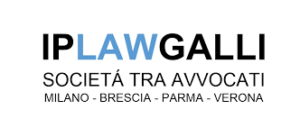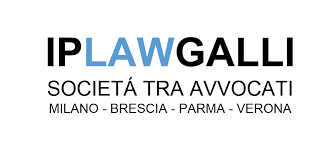
At the meeting of the Unified Patent Court’s Preparatory Committee held on 10 September last, convened by videoconference to discuss, among other things, the effects of the United Kingdom’s withdrawal of ratification of the Court’s founding Agreement, Italy announced its intention to present the candidature of Milan as the new branch of the UPC headquarters to substitute London. Other applications could be Amsterdam and Copenhagen.
At the end of the Preparatory Committee meeting, the issued Report made no express mention of this topic and generically explained that “issues concerning the effects of the UK withdrawal were discussed as well as appropriate ways forward” and that “good progress was made and the Committee is confident that pragmatic and legally sound solutions will be found that will enable the unitary patent system to be functional in a near future”.
The Italian Ministry of Foreign Affairs, on the other hand, issued a more detailed statement, in which the Committee “confirmed the willingness of the participating States to ensure the entry into force of the UPC as soon as the ratification process is completed, and hopefully as early as the beginning of 2021″, and “to allow this to happen, approved a provisional redistribution of the competencies of the London office between the existing offices in Paris and Munich, provided however, that this is a short-term solution, pending the entry into force of the Agreement and that Italy can start, in agreement with the other signatory States, the procedure for amending the Pact to include Milan as the third seat of the central Court division”.
Article 7.2 of the Agreement establishing the UPC provides that “The central division have its headquarters in Paris, with sections in London and Munich. Cases before the central division shall be distributed in accordance with Attachment II, which forms an essential part of this Agreement” (which states that London section shall be primarily the suits for pharmaceutical and Life Science patents).
Now, as a result of Brexit, the principle of treaty conservation, which can also be derived from the 1969 Vienna Convention on the Law of Treaties, requires this rule to be interpreted as meaning that, as a consequence of the withdrawal of the United Kingdom, the head office continues to have two detached sections, as was established, so that simply the London office must be reassigned. Consequently, only temporarily – as an exception to the Agreement – its authorities can be divided between Paris and Munich, given that the London office will have to be reassigned at a fixed deadline.
This means that a Head Office with two branches’ offices is established by the Agreement itself, and this status of things is not destined to change, even if one of these two offices has become unavailable and must be replaced by another branch office.
In this context, the choice of Milan is certainly not mandatory, but it deserves to be taken seriously, for many reasons.
First of all, the criteria followed to designate London, since UK was in third place for number of patents and Italy was fourth.
Secondly, Italy accounts for 52% of the medicines sold in the European Union, so Italy is also the ideal candidate to host the UPC pharmaceutical patents branch.
Thirdly, Italy throughout the world is a symbol of quality of life, due to its outstanding lifestyle, its food and wine culture, its fashion and design tradition, but also due to its most innovative sectors, such as: biomedical; mechanics; mechatronics; artificial intelligence applied first; and foremost to the very sectors that have to do with life, and with all the spin-offs that these activities create.
Especially Milan, which is the Italian most European city, located at the centre of an area that, despite Covid, remains one of the strongest in Europe, particularly in terms of innovative companies and research, including university research, with centres of absolute excellence such as the Politecnico of Milan, the University San Raffaele and Humanitas Hospital, not surprisingly all active in Pharmaceutical and Life Science sectors.
It is an asset that may help the whole of Europe to compete in the global world, and the choice of Milan as a location for UPC headquarters would therefore contribute to enhance the worldwide reputation of Europe itself.
In fact, post-Covid Europe should aim at implementing projects and programmes that enable the mutual enhancement of all the most innovative EU companies, together with the territories in which they operate and so the EU as a whole, in order to gain a competitive factor on world markets. The European economic system should be supported not through assistance, but aids aimed at building the conditions for a resumption of growth, bearing in mind the new demands of tomorrow’s market, given that the changes in the way of working, and also the new professions, that the “war on the Coronavirus” is inevitably introducing cannot be forgotten, also because they have positive impacts on life and environmental sustainability.
In other words, the new development will have to respond to the need for quality of life that this crisis has highlighted, and which means – first and foremost – health, together with protection of the environment, domestic living, well-being, security (including communications), comfort, and the possibility of reconciling work with personal and family needs.
Therefore, the assignment of one of the three headquarters of the Unified Patent Court in Milan is much more than bringing an EU institution to Italy: it is an important part of a realistic project to re-launch and re-qualify the European economy after the Covid-19 emergency, starting from a clear vision of the future based on the strengths of the various regions of Europe and the concrete ways to enhance them.


